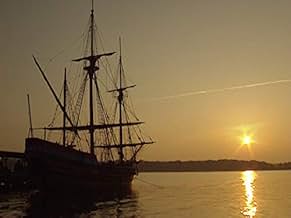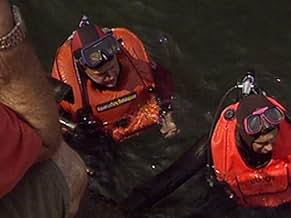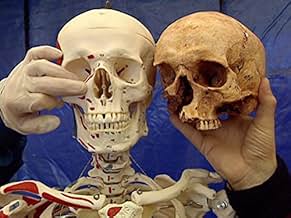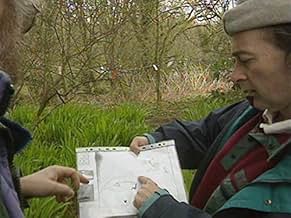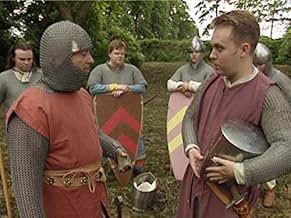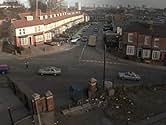AVALIAÇÃO DA IMDb
8,5/10
1,9 mil
SUA AVALIAÇÃO
Adicionar um enredo no seu idiomaA group of archaeologists have 3 days to discover historical artifacts in different sites around Britain.A group of archaeologists have 3 days to discover historical artifacts in different sites around Britain.A group of archaeologists have 3 days to discover historical artifacts in different sites around Britain.
- Indicado para 1 prêmio BAFTA
- 1 indicação no total
Explorar episódios
Avaliações em destaque
This is the show to watch and it had to be a dream job for the professionals working on this show for 20 years. All the different sites they got to dig that would take most archaeologists several lifetimes to visit. Don't let Phil Harding's happy go lucky attitude fool you, he's as smart as anyone in his field, possibly smarter. Mick Aston is another incredibly knowledgeable part of the team and the team leader who got the shaft later in the series by Channel 4 causing him to quit when they brought in some spokeswoman former model - on an archaeology show, I don't blame him. There are several other professionals that are regulars on the show who are also very well versed in their fields of expertise and they occasionally bring in specialists like pottery or weapons specialists and an osteoarchaeologist on occasion. The end of one episode a man said he learned 3 things in the 3 days the Time Team was there and the 3rd and final thing he learned was Phil Harding could really put back the beer, which is hilarious and not surprising. He's my favorite person on the show, and he will be yours too. Almost the entire series is available on Amazon Prime video.
I've gone through the twenty years at least twice, and always come back. The talented and interesting "regulars" are a main reason for the show's continued popularity. Literally, it is timeless--not depending on the current news, celebrities, or fashions. It is educational, and it also would appeal to fans of mystery stories, because each episode involves a mystery and you participate as clues are dug up. The regulars are probably good friends, and not just good actors. Finally, each episode is independent, so you don't have to watch them in order and if you miss one or more episodes, you don't need to catch up on the story. I'm a permanent fan.
Although it can be seen every day, all year round on the Discovery channels, new series are filmed in the summer and broadcast very early the following year. Obviously Live digs are different and potentially more exciting. I like Tony Robinson and Mick Aston, but my two favourites are Carrenza Lewis and Phil Harding. In the past few years, Phil has been in danger of being a bit of a caricature with his hat with the feather and his shorts regardless of the weather. He needs nothing extra to be the star of the show as he exudes both enthusiasm and professionalism. My favourite programmes are the roman digs when there is always something to see. Mr least favourite are those from prehistoric times.
There is far too much rubbish on television these days. Thank goodness therefore for wonderful, engaging, intelligent programmes like Time Team (and its spin-off Extreme Archaeology by the same producer Tim Taylor).
Presented by Tony Robinson (of Blackadder fame) the premise of the programme is to bring together a number of Archaeologists, experts in various fields, to try and investigate a particular problem in three days.
The team works on various of locations, mainly in the UK but occasionally abroad. They investigate a wide variety of historical periods from stone age man living in Cheddar Gorge, through Roman villas up to an American World War II bomber which crashed in South East England.
The expertise and resources, both human and technological, that Time Team can bring to a dig means that they can often discover more about a site in the three days than the local archaeologists had been able to find out in previous years. In fact local archaeologists often invite the team to investigate problems that they haven't been able to deal with themselves. At the other end of the scale the team sometimes investigates anomalies that viewers have found in their own back gardens.
Another important part of the programme is a task or reconstruction relating to the dig. For example when working on Josiah Wedgewood's first kiln, the team showed the process that he went through to produce his pottery. In another episode when excavating a Roman villa, they produced a reproduction of a mosaic.
Overall this is an extremely intelligent programme with a superb presenter and interesting experts whose obvious enthusiasm really comes across when they are describing what is going on.
Finally it is worth mentioning the excellent 'Time Team Live' digs, where Time Team have conducted an excavation over the course of a few of days with a number of live programmes over that period where they give an update of what is happening and what they have found.
What is so wonderful about this programme is the thrill of discovery. Nobody knows exactly what is going to happen and the direction of the programme can change halfway through based on the evidence that has turned up. Its a long way from the latest boring, predictable soap opera!
Presented by Tony Robinson (of Blackadder fame) the premise of the programme is to bring together a number of Archaeologists, experts in various fields, to try and investigate a particular problem in three days.
The team works on various of locations, mainly in the UK but occasionally abroad. They investigate a wide variety of historical periods from stone age man living in Cheddar Gorge, through Roman villas up to an American World War II bomber which crashed in South East England.
The expertise and resources, both human and technological, that Time Team can bring to a dig means that they can often discover more about a site in the three days than the local archaeologists had been able to find out in previous years. In fact local archaeologists often invite the team to investigate problems that they haven't been able to deal with themselves. At the other end of the scale the team sometimes investigates anomalies that viewers have found in their own back gardens.
Another important part of the programme is a task or reconstruction relating to the dig. For example when working on Josiah Wedgewood's first kiln, the team showed the process that he went through to produce his pottery. In another episode when excavating a Roman villa, they produced a reproduction of a mosaic.
Overall this is an extremely intelligent programme with a superb presenter and interesting experts whose obvious enthusiasm really comes across when they are describing what is going on.
Finally it is worth mentioning the excellent 'Time Team Live' digs, where Time Team have conducted an excavation over the course of a few of days with a number of live programmes over that period where they give an update of what is happening and what they have found.
What is so wonderful about this programme is the thrill of discovery. Nobody knows exactly what is going to happen and the direction of the programme can change halfway through based on the evidence that has turned up. Its a long way from the latest boring, predictable soap opera!
Each show covers one archaeological dig - start to finish - incorporating the expertise of historians, anthropologists, paleontologists, area locals, geo-physicists, cartographers and area surveyors to name but a few. The team use artists to both sketch out archaic scenes as well as design computer graphics to show 3 dimensional perspectives of once existing structures. Adding re-enactments, experiments and the rebuilding of artifacts by modern experts only adds to the diversity of the show.
The holistic approach to the dig-site provides a fascinating, multi-tiered study that is accessible to the viewer, regardless of their background.
The holistic approach to the dig-site provides a fascinating, multi-tiered study that is accessible to the viewer, regardless of their background.
Você sabia?
Principais escolhas
Faça login para avaliar e ver a lista de recomendações personalizadas
- How many seasons does Time Team have?Fornecido pela Alexa
Detalhes
- Data de lançamento
- País de origem
- Idioma
- Também conhecido como
- Команда времени
- Locações de filme
- Empresas de produção
- Consulte mais créditos da empresa na IMDbPro
Contribua para esta página
Sugerir uma alteração ou adicionar conteúdo ausente


